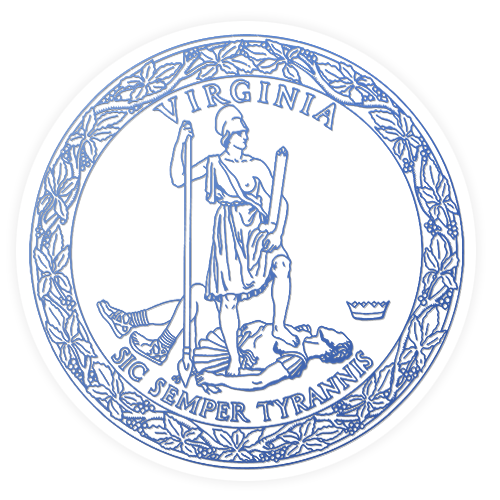
RICHMOND—Today, Governor Ralph Northam announced a legislative package focused on improving environmental quality and management of natural resources in Virginia. The package includes the Coastal Protection Act, the Water Quality and Safety Act, the Stormwater Local Assistance Fund Amendments Act, and two bills designed to reduce conflicts between shellfish growers and other users of tidal waters.
“During my first year in office, we have taken bold steps to address the pressing environmental threats facing our Commonwealth, and I look forward to building on that progress this session,” said Governor Northam. “With this legislative package, we have a critical opportunity to strengthen our communities and our regional economies, while also ensuring sound stewardship of our natural resources and protecting public health.”
The Coastal Protection Act, patroned by Senator Lynwood Lewis, would allow the Commonwealth to use an estimated $50 million in revenue generated by the sale of carbon pollution credits to be used for coastal resilience projects, and dedicate significant funds to low income energy efficiency and economic transition for coal communities.
“The Regional Greenhouse Gas Initiative has the potential to bring millions of dollars to the Commonwealth that would go towards addressing coastal resiliency and sea level rise, as well as energy efficiency and renewable resources,” said Senator Lynwood Lewis. “As the legislature seeks creative ways to fund critical priorities every year, we have an opportunity through RGGI to instead establish a reliable revenue stream while simultaneously lowering utility bills and bringing new jobs to the state. It’s a win-win-win.”
“I thank the patrons of these bills for their leadership, and I am looking forward to working with them and the rest of the General Assembly to advance these important proposals during session,” said Secretary of Natural Resources Matthew J. Strickler. “Protecting our coasts, improving water quality, reducing carbon pollution, and promoting sustainable and conflict-free shellfish aquaculture are significant priorities for the Northam Administration.”
The Water Quality and Safety Act, which will be introduced by Senator Scott Surovell and Delegate Jennifer Carroll Foy, will end Virginia’s moratorium on closing coal ash dumps in the Chesapeake Bay Watershed and require that all of the material is removed from unlined pits and either recycled or transferred to a safe, lined landfill.
“This summer’s review confirmed we can innovatively recycle coal ash while creating Virginia jobs at minimal cost,” said Senator Scott Surovell. “Dominion’s original proposal to permanently store coal ash in ponds has been proven unwise—the time has come to resolve the coal ash issue once and for all and to ensure clean rivers and drinking water for everyone.”
“I’m excited to work with Governor Northam on legislation to responsibly clean up coal ash, because clean air and clean water is important to all Virginians,” said Delegate Jennifer Carroll Foy.
The Stormwater Local Assistance Fund Amendments Act will make it easier for rural communities to access a portion of the matching funds made available to reduce polluted runoff from impervious surfaces like roads and parking lots. The bill will be carried by Delegate Margaret Ransone and Senator Emmett Hanger.
“Our rural communities that are taking steps voluntarily to improve water quality need access to reliable state assistance,” said Delegate Margaret B. Ransone. “Providing funding through the Stormwater Local Assistance Fund to communities statewide is critical to local water quality and local economies. This legislation is good for rural Virginia.”
“Throughout the Shenandoah Valley, small, rural towns are taking steps to improve their communities and local creeks and streams,” said Senator Emmett W. Hanger, Jr. “This legislation will ensure those localities have reliable support from the state’s stormwater local assistance funding.”
The two bills related to shellfish aquaculture are the product of consensus recommendations delivered to the Secretary of Natural Resources last month by a stakeholder working group that focused on strategies for reducing user conflicts on the water. The first bill, patroned by Delegate Chris Stolle, will improve the process for allowing municipal dredging projects in the Lynnhaven River in Virginia Beach, while also ensuring fair compensation for oyster lease holders that are impacted by the projects. The second bill, which will be introduced by Senator Monty Mason, improves the review of lease applications by the Virginia Marine Resources Commission and raises some one-time fees to help weed out bad actors who may lease ground purely for speculative purposes.
“I am honored to represent Virginians who have the opportunity to work and play on the most beautiful waters in the world,” said Delegate Chris Stolle. “We have been trying for several years to find the right balance to the complex issues surrounding the commercial and recreational use of our waterways. I am thankful to Secretary Strickler and the Governor for bringing stakeholders to the table to learn from each other and who were open to finding workable solutions. I look forward to presenting the workgroup’s consensus bill that will advance dredging along the Lynnhaven River while protecting oyster leases for those active in the aquaculture industry.”
“Modernizing the leasing program for shellfish planting grounds is necessary to weed out bad actors and maximize beneficial use while minimizing user conflicts and abuses of the system,” said Senator Monty Mason. “This legislation will allow us to carry out consensus recommendations of the shellfish aquaculture working group in which I participated over the summer and fall, and create lasting stability for the aquaculture industry and others who work or play on Virginia’s waters.”
# # #